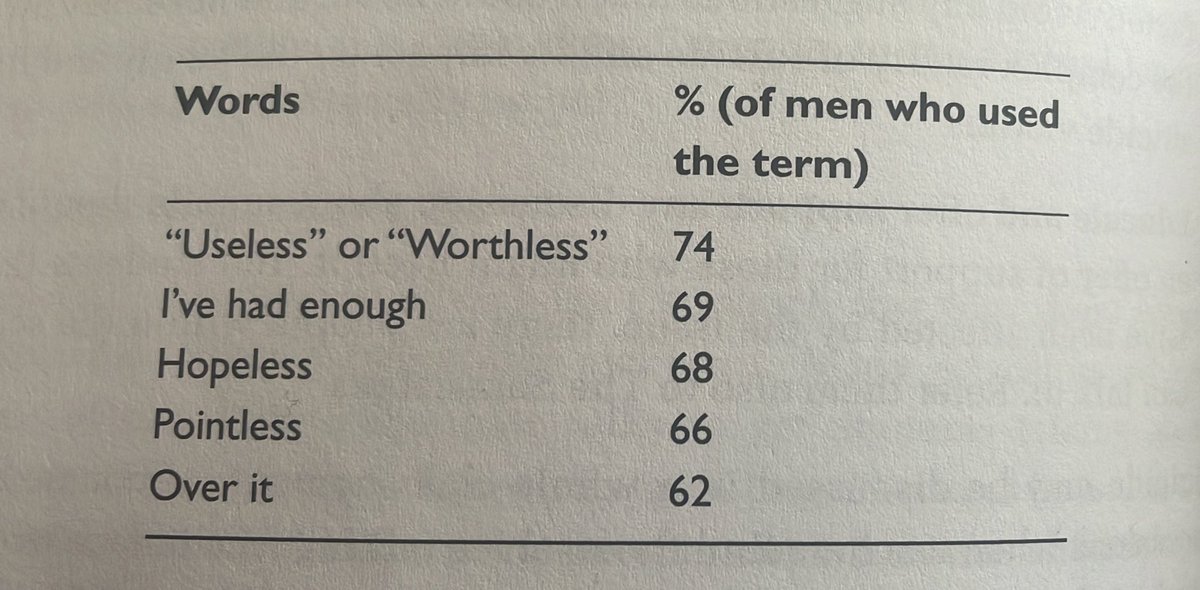🧵 BOYS AND TEACHER HUMOUR 🧵
Boys have a complex relationship with humour, what with banter etc, but I'm going to try and keep this thread short and focused on teacher use of humour to build relationships. Ready?
Boys have a complex relationship with humour, what with banter etc, but I'm going to try and keep this thread short and focused on teacher use of humour to build relationships. Ready?

Firstly, know that humour works with boys. Studies show that the use of humour is important for boys in forging relationships.
Also, a study from Japan showed that specific types of teacher humour is really good for student mental health AND teacher-pupil relationships.
Also, a study from Japan showed that specific types of teacher humour is really good for student mental health AND teacher-pupil relationships.
And we want positive relationships with our male students right? So, at the risk of sounding a bit Brenty, allow me to tell you how to be funny.
After all, Who needs 'Effective Marking Strategies CPD' when you can have 'Effective Groucho Marxing Strategies CPD'?
After all, Who needs 'Effective Marking Strategies CPD' when you can have 'Effective Groucho Marxing Strategies CPD'?
Students' favourite type of humour something called 'related humour'. That is, any humour directly related to the lesson content. Related humour can be conveniently broken down into ten subcategories. I'm going to tell you them now and yes, I'm cringing already. Sorry!
1. PROPS
Kids enjoy it when teachers 'dress up for the theme of the class.' So nippy down to the fancy dress shop and blow the kids away next week.
History teachers - you be careful with this one.
Kids enjoy it when teachers 'dress up for the theme of the class.' So nippy down to the fancy dress shop and blow the kids away next week.
History teachers - you be careful with this one.
2. JOKES
Jokes about the lesson content are funny. Like this gem of my own creation:
'You know who's going to win the best punctuation mark award this year? The colon. I can feel it in my stomach.'
Geddit?
Jokes about the lesson content are funny. Like this gem of my own creation:
'You know who's going to win the best punctuation mark award this year? The colon. I can feel it in my stomach.'
Geddit?
3. EXAMPLES
Humourous examples are a win. The Japan study specified that kids liked it when 'maths teachers have used names in word problems that were humorous.'
This crazy maths teachers, eh?
Humourous examples are a win. The Japan study specified that kids liked it when 'maths teachers have used names in word problems that were humorous.'
This crazy maths teachers, eh?
4. STORIES
Students like it when teachers use funny concepts to explain stories. Like when I tell them about the time I told them I kept calling hyperbole, hyper bowl to somebody I was trying to impress at University.
Hilarious, that. Really, really funny.
Students like it when teachers use funny concepts to explain stories. Like when I tell them about the time I told them I kept calling hyperbole, hyper bowl to somebody I was trying to impress at University.
Hilarious, that. Really, really funny.
On that note - not one for the kids this - but doesn't the word hyperbolic sound like an excited testicle?
Anyways - we carry on...
Anyways - we carry on...
5. CYNICISM
Apparently kids love it when teachers rip the piss out of course materials such as textbooks or online videos. A great opportunity to legitimately let loose on those textbooks from the 1970s (or 1870s) that have been collecting dust in the stationary cupboard.
Apparently kids love it when teachers rip the piss out of course materials such as textbooks or online videos. A great opportunity to legitimately let loose on those textbooks from the 1970s (or 1870s) that have been collecting dust in the stationary cupboard.
6. STEREOTYPES
Pot shots at student behaviours are apparently welcome. 'I know you lot all think Shakespeare's boring' and 'All teens are lazy' sorta stuff. They like it when you tease them about the slang they use too, but I'd advise you to check Urban Dictionary before!
Pot shots at student behaviours are apparently welcome. 'I know you lot all think Shakespeare's boring' and 'All teens are lazy' sorta stuff. They like it when you tease them about the slang they use too, but I'd advise you to check Urban Dictionary before!
7. STUDENT TEASING
Rather confusingly, this one is also on the list of humour types that students hate most so tread carefully.
It's okay if it's 'related to the material.'
Yeah. I don't know either.
Rather confusingly, this one is also on the list of humour types that students hate most so tread carefully.
It's okay if it's 'related to the material.'
Yeah. I don't know either.
8. TEACHER PERFORMANCE
Kids like it when teachers perform. I often recite bad poetry to children. I don't know why.
In the study they mention a teacher who ran around the room. Another student said he 'liked it when his teacher did a rap about math.'
Please. Never do this.
Kids like it when teachers perform. I often recite bad poetry to children. I don't know why.
In the study they mention a teacher who ran around the room. Another student said he 'liked it when his teacher did a rap about math.'
Please. Never do this.
9. ROLE PLAYING ACTIVITIES.
Getting students to play parts is always fun. For example, getting students to play excited gas particles and lazy solid particles.
I wouldn't get kids playing the parts of the reproductive system though. That would be weird.
Getting students to play parts is always fun. For example, getting students to play excited gas particles and lazy solid particles.
I wouldn't get kids playing the parts of the reproductive system though. That would be weird.
10. CREATIVE LANGUAGE USE
The use of puns humorous mnemonics and funny names. The Japan study mentions one entertainingly hilarious teacher who refers to bacteria as 'little beasties
Ha...
Ha...
Ha.
Ha.
The use of puns humorous mnemonics and funny names. The Japan study mentions one entertainingly hilarious teacher who refers to bacteria as 'little beasties
Ha...
Ha...
Ha.
Ha.
@threadreaderapp unroll please!
• • •
Missing some Tweet in this thread? You can try to
force a refresh












